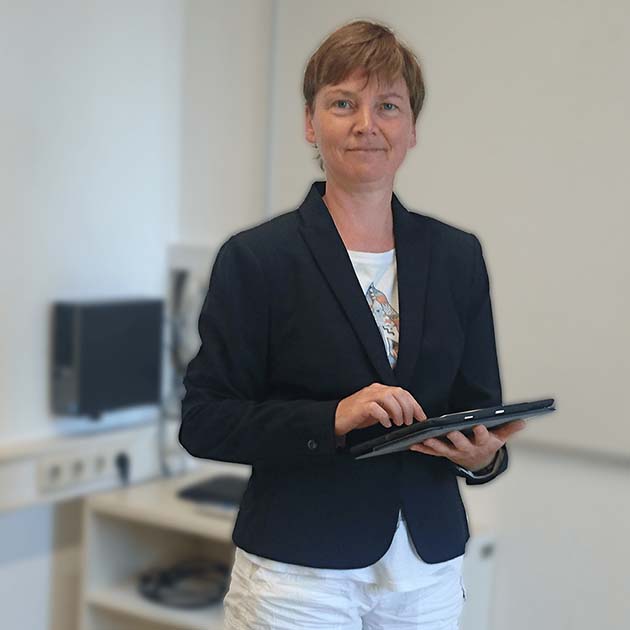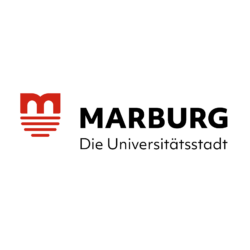Case Processing from the Home Office
For several years now, the City of Marburg has been consistently expanding the use of the d.velop eFile across its various departments. The electronic file system not only increases efficiency and enables better, faster collaboration — it also proved essential during the pandemic. Thanks to the eFile, staff in different departments were able to remain operational while working from home — and will continue to be in the future.
Transformation into a Digital City Administration
The “eFile” project in Marburg is managed by a dedicated specialist service unit. This team oversees the city’s overall digitalisation strategy, including the standardisation of records management and the implementation of electronic workflows — all key components of a modern digital administration. Dr Karen Verbist, Head of the Digitalisation Unit, explains: “In 2018, we replaced our previous document management system with d.velop documents.”
“We needed a solution that meets the demands of a large administration like the University City of Marburg, with over 1,000 PC workstations. Thanks to its scalability and strong performance, d.velop documents enables us to roll out ECM and the eFile quickly and across the board.”
1.000
workstations in the administration of the University City of Marburg.
10.000
analogue files were digitised in the Foreigners’ Affairs Office.
50
specialist procedures are seamlessly integrated with the ECM software.
Media-Free Digital Administration
One of the key advantages of the d.velop software is its high level of integration with specialist administrative systems, as well as the broad functionality of its approval workflow. Almost every one of the city administration’s 55 departments uses at least one specialised system. With the introduction of the eFile, these departments are now on the path to a fully digital, media-free administration. To achieve this, the specialist systems must be connected to the ECM software. Fortunately, d.velop documents already offers interfaces for many commonly used systems, eliminating the need for custom development.
In the Foreigners’ Affairs Office, around 10,000 formerly paper-based files have now been digitised. Previously, these files were spread across multiple offices, making searches time-consuming. Now, with parallel access to digital records, the approximately 20 staff members in the department save a significant amount of time.
The transfer of electronic case files to other Foreigners’ Affairs Offices has also been fully digitalised, thanks to a secure file exchange platform provided by the State of Hesse. The Social Services Department now also works with electronic files, and the Human Resources Department has introduced the digital personnel file. In the Asylum and Migration division, the eFile has been integrated with Open Prosoz. Since November 2020, the digital housing benefit file has been in productive use within the Housing Department.
We should support companies that make the effort to prioritise accessibility, rather than choosing solutions that may look impressive but can only be used by sighted people. Thinking about accessibility from the very beginning makes everything easier — and ultimately, more cost-effective.
Christian Eichberger
Accessibility Tester for d.velop documents
City of Marburg
High User Comfort – Even Without a Direct Interface Between ECM and Specialist Systems
Dr Karen Verbist: “We successfully transitioned these areas to fully digital case processing using electronic files.”
One of the biggest challenges was that the specialist systems used in the housing department had no dedicated ECM interface. “We therefore developed a sophisticated system of COLD processes to split up notices that were either centrally printed or generated as batch PDFs, allowing them to be automatically filed in the eFile.”
“Even without a direct interface, we achieved a high level of user comfort for our caseworkers.” In the area of misallocated housing charges, the team began building an eFile with a four-level nested folder structure. This was possible because d.velop documents offers a high degree of flexibility. Apart from setting up selection lists in the eFile — which was handled by d.velop — the Marburg IT team was able to build the entire file solution independently. Following the same approach, data on homeless individuals, previously stored only in paper form, was structured and integrated into the new eFile system. In this case, the eFile itself takes on the role of the specialist system. Even without a dedicated interface — or where no specialist application exists at all — eFiles can be used effectively and contribute significantly to more efficient working.
In-house IT expertise and project management are essential
“For projects of this nature, in-house expertise is crucial,” says Dr Verbist based on experience. “You need to allocate personnel resources and have individuals with a good overview of the various specialist procedures and their specific characteristics.” In Marburg, both technical d.velop documents administrators and project managers within the digital services department are responsible for this. Across all departments, the use of the eFile proved extremely helpful to staff during the pandemic and will continue to support remote working in the future.

Department-by-department introduction of a standardised filing plan
The next file management projects are scheduled in the areas of structural engineering and building management, youth welfare and social services, as well as the public order and trade office. At the same time, the university city of Marburg has begun introducing a standardised filing plan using the corresponding module in d.velop documents. The city administration is organised in a decentralised manner, with each unit previously maintaining its own filing structure. Ten out of a total of 55 departments, comprising around 1,000 employees, are already working with the task-oriented filing plan developed by KGSt. A specific section titled “General Information for the Administration” has been explicitly activated within the system. “This allows everyone to use the system, which has noticeably increased acceptance,” says Dr Verbist.

The integration between document management and workflow – the ECM concept – is very well implemented in d.velop documents.
Dr. Karen Verbist
Head of the Coordination Office for Digital Administration
University City of Marburg
Integration between Document Management and Workflow
By now, each of the 540 employees in the Marburg city administration who works on a PC or laptop has access to centrally provided information, can search for content, and—provided they have the necessary permissions—store documents after the introduction of the filing plan and/or the eFile. One of the first ECM projects in Marburg was the implementation of an approval workflow for incoming and outgoing invoices. As early as 2018, with the first eFile solutions, digital invoice processing was introduced, including early scanning of incoming documents.
“This integration between document management and workflow—the core idea of ECM—is very well implemented in d.velop documents,” says Dr Verbist. The university city not only uses the approval workflow for incoming invoices, as is usually the case, but also for outgoing, so-called debtor-related approvals. This triad of workflows, eFile, and digital filing plan has laid the foundation for modern digital administrative work in Marburg through the ECM system.
Software-Demo
Learn More About d.velop Software
Request your personalised live demo of the d.velop software with just a few clicks. Get a live demonstration of the software and ask your questions directly. Simply fill out the form and we will get back to you.

